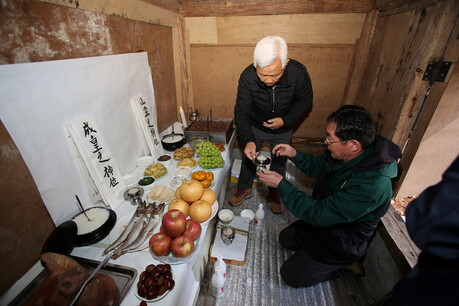South Korea has launched a comprehensive public-private task force designed to revolutionize the nation's tourism industry by leveraging the worldwide popularity of Korean culture. The K-tourism innovation task force was officially inaugurated at the National Museum of Modern and Contemporary Art in Seoul, bringing together more than 20 officials, scholars, and industry leaders to address the country's tourism challenges and opportunities.
This initiative represents the first major tourism policy under the Lee Jae Myung administration and aims to convert the global momentum of K-culture into sustainable growth for the tourism sector. During his opening remarks, Minister of Culture, Sports and Tourism Chae Hwi-young acknowledged both the potential and the challenges facing Korean tourism, noting that while K-culture enjoys enormous global influence, the country has lost ground to regional competitors.
"Ten years ago, the number of inbound tourists coming to Korea was higher than that of Japan. But in recent years, Japan has overtaken us by double," Chae stated during his speech. "Although K-culture is enjoying enormous global influence, we need to carefully examine what Japan has done well over the past decade."
The task force operates under Chae's leadership and includes participation from multiple government agencies and major institutions, including the Korea Tourism Organization, Korea Airports Corporation, Korea Railroad Corporation, and Korea Transport Institute. According to the ministry, the group will convene bimonthly meetings and serve as a collaborative platform that bridges government agencies, academic institutions, cultural experts, and private businesses to enhance policy implementation and industry competitiveness.
The composition of the task force reflects a diverse range of expertise and perspectives. University professors specializing in tourism, regional development, and marketing will provide academic insights, while prominent industry leaders will contribute knowledge about digital innovation and consumer experience. The group also includes cultural creators, travel writers, and international voices, notably Italian-born television personality Alberto Mondi, to ensure that traveler psychology and global viewpoints are incorporated into the planning process.
The task force has identified four primary focus areas for its work: expanding inbound tourism, improving visitor infrastructure, revitalizing regional tourism, and enhancing overall industry competitiveness. To achieve these objectives, the group plans to implement key measures including regional consultations, practical on-the-ground policy experiments, and the creation of a comprehensive nationwide innovation roadmap.
During the inauguration event, expert presentations highlighted both the obstacles and opportunities confronting Korean tourism. Speakers emphasized the need for strategies that can sustain visitor growth, diversify tourism experiences, and encourage tourists to extend their stays in the country. Professor Choi Kyu-wan of Kyung Hee University identified a critical structural problem affecting Korean tourism development.
"There is a severe imbalance caused by an excessive concentration of travel demand in the Seoul metropolitan area," Professor Choi explained. He provided a comparative analysis with Japan, noting that "in Japan, domestic carriers operate flights to 30 different airports, while Japanese carriers only land at Incheon and Gimpo airports in Korea due to lack of market expansion strategy and consequent decline in regional demand." The professor also criticized Korea's regions for their failure to identify and develop distinctive local characteristics into viable tourism assets.
Minister Chae emphasized the strategic importance of tourism in revitalizing both the national economy and regional communities across the country. "Tourism is a core industry that can break through slow growth and counter regional decline," the minister stated. "With the K-tourism innovation task force, we will move beyond Seoul and ensure that communities across the country share in the benefits of a thriving tourism ecosystem." This comprehensive approach signals South Korea's commitment to transforming its tourism industry while addressing longstanding regional development challenges.






























